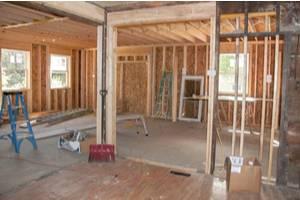New Accessory Apartment Law Goes Into Effect in Connecticut
 The new year usually means new laws for Connecticut citizens. Many of the bills that are enacted into laws during the prior year usually go into effect on January 1st of the new year. The year 2022 is no different. One of the new laws taking effect next week addresses the legality of accessory apartments in the state.
The new year usually means new laws for Connecticut citizens. Many of the bills that are enacted into laws during the prior year usually go into effect on January 1st of the new year. The year 2022 is no different. One of the new laws taking effect next week addresses the legality of accessory apartments in the state.
What Are Accessory Apartments?
The real estate market has been booming in the United States for the past few years. Sellers definitely have the upper hand, setting high prices for their properties that often result in bidding wars between buyers and “under contract” signs within days of the property being put on the market.
This housing boom has also had a significant impact for renters, as well. Not only have the prices of rental units skyrocketed, but many landlords have also decided to take advantage of the current market, selling their rental properties and leaving renters with few options for finding affordable housing.
One solution to the lack of rental units has been gaining popularity – accessory apartments. An accessory apartment is a unit that is on the same grounds as a single-family home or attached to the house. Examples of accessory apartments or dwellings include:
-
A tiny house in the backyard
-
An apartment over the garage of the home
-
A basement apartment
-
An addition apartment attached to the main home
An accessory apartment or dwelling cannot be sold separately from the main house. At one time, these types of units were quite popular in the country, but sometime in the middle of the 20th century, lost their popularity. However, over the past couple of years, they have become a more popular option for property owners again.
Some property owners may decide to build an accessory unit to earn rental income. Another common reason for these dwellings is to help out loved ones, such as an adult child or an elderly parent, while allowing everyone to have their own living spaces.
New Connecticut Law
As with any type of change to a residential or commercial property, owners must adhere to Connecticut zoning laws. The risk of exclusionary zoning laws preventing homeowners from utilizing space on their property for accessory apartments, whatever their reason for doing so, led Connecticut lawmakers to pass a new law that stipulates what property owners are allowed and not allowed to do.
Under the new law, an accessory apartment is limited to either 1,000 square feet or 30 percent of the main home, whichever is smaller. The unit can be located in the main home, including a walk-out basement, garage, etc., attached to the home or a separate building on the property. All units must comply with all building codes and any municipal physical and architectural standards. The unit must receive whatever compliance approvals and/or certificates required by the municipality it is located in. Lawmakers also have left it up to each city and town to decide if the property owner is required to live in either the main property or the accessory unit.
Contact a Stamford, CT Real Estate Attorney
If you are a property owner who is considering adding an accessory apartment or dwelling to your home, contact a Fairfield County real estate lawyer to ensure that you are following all state and municipal laws and regulations. Call Law Offices of Daniel P. Weiner at 203-348-5846 to schedule a free consultation.
Sources:
https://www.cga.ct.gov/2021/FC/PDF/2021HB-06107-R000716-FC.PDF
https://www.tandfonline.com/doi/abs/10.1080/02673030120080099#.UaYt7Up3fs







